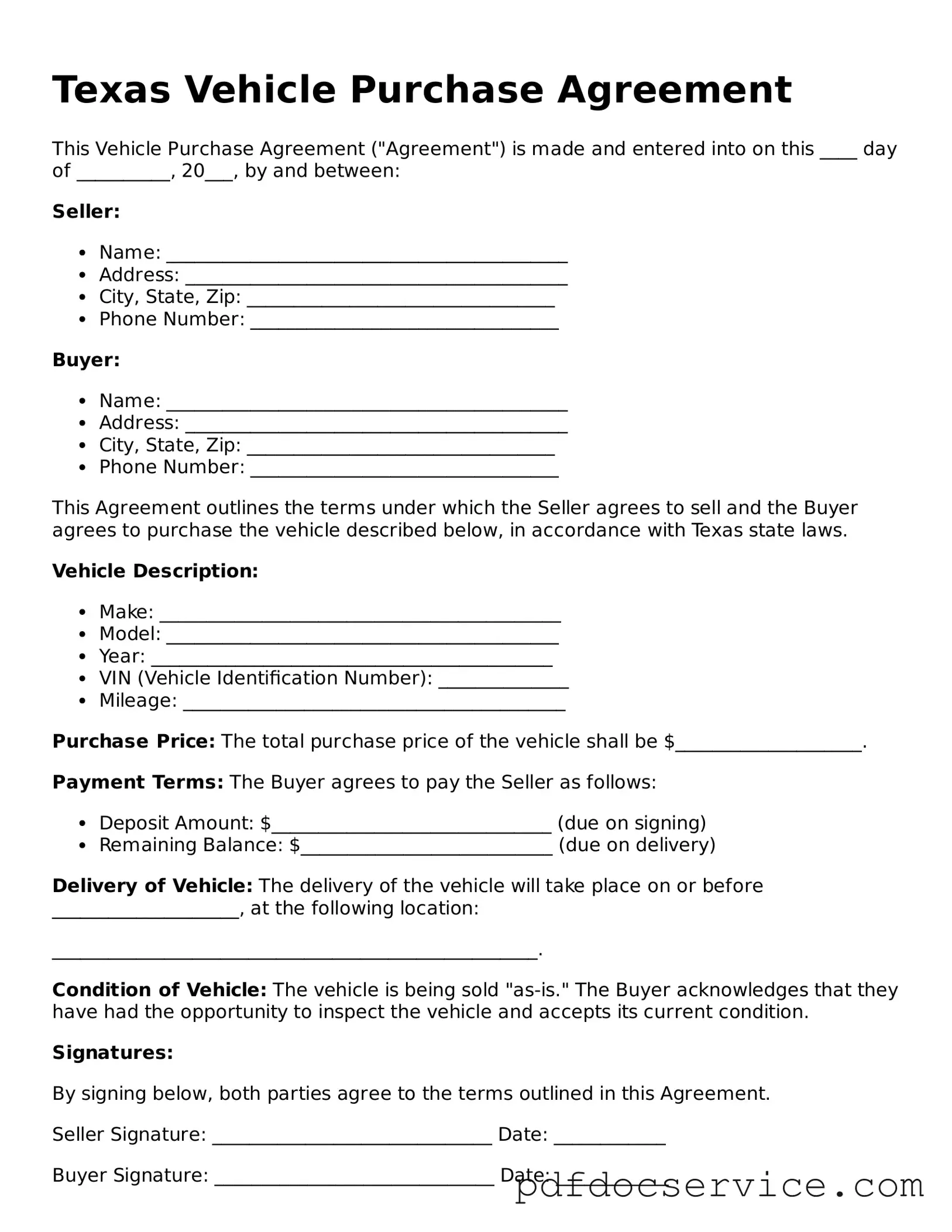Printable Vehicle Purchase Agreement Template for Texas
The Texas Vehicle Purchase Agreement is a legal document that outlines the terms and conditions of a vehicle sale between a buyer and a seller. This form serves as a crucial tool in ensuring both parties understand their rights and responsibilities during the transaction. By using this agreement, buyers and sellers can protect themselves and facilitate a smooth transfer of ownership.
Open Vehicle Purchase Agreement Editor

Printable Vehicle Purchase Agreement Template for Texas
Open Vehicle Purchase Agreement Editor

Open Vehicle Purchase Agreement Editor
or
Get Vehicle Purchase Agreement PDF
Finish the form now and be done
Finish Vehicle Purchase Agreement online using simple edit, save, and download steps.